“It was a lot,” says Billy Boyter, former owner and head chef of The Cellar, Anstruther, “but I don’t for a second regret any of it at all.”
The Michelin star venue had a 10 year stint in the Fife town, before the closure was announced in January.
For Billy, 41, while the closure was “difficult”, he is looking forward to a more “flexible” work life balance with his new role as executive chef at Rusacks, St Andrews.
Reflecting on ‘difficult’ closure of The Cellar
“There were a few factors that led to it [the closure],” he said.
“I mean, there’s no hiding away from the fact that things are tough right now for the industry.
“When you put so much into a place, to have to step away from it because of things that are outside of your control is really, really difficult.
“I was very lucky that this opportunity was here, and on my doorstep as well.”
The Anstruther eatery was forced to shut its doors in part due to financial strain, and was a blow for the local community and the Scottish food and drink scene as a whole.
“The good thing is, my life is a bit more flexible now,” continues Billy.
“My life and my family’s life rotated around the restaurant.
“So if there was a friend’s wedding on a Saturday, there was no point in asking me if I could go or not, because I couldn’t go.
“There’s a lot of sacrifice and you miss out on a lot of things.”
No regrets for Billy Boyter as he moves on from The Cellar
There was minimal free time as both owner and head chef of The Cellar.
“At The Cellar, being self-employed and having your own restaurant, it was pretty much 24 hours a day, seven days a week.
“Even your days off aren’t really days off, because there’s always things that need done.
As well as being the head chef, you are the handyman, painter, plumber, all of those things.”
“I tried to always put a Sunday aside when I was at The Cellar and always have the Sunday with the family.
“But on the Monday, you’re putting orders in, you’re checking emails. There’s always things at the restaurant that need done.
“As well as being the head chef, you are the handyman, painter, plumber, all of those things.
“It was a lot, but I don’t for a second regret any of it at all.”
Billy came from a family of fisherman, and became a chef by “complete accident”.
A summer job in Pitlochry kitchen changed his career progression entirely.
He says: “If I hadn’t went to Pitlochry and ended up working in a hotel, I have no idea what I would be doing.
“Because I had no real desire or drive to be a chef at that point.”
Why Rusacks, St Andrews, is good for Billy
Now, as executive chef of Rusacks, Billy has the opportunity to reshape the food offering at the luxury hotel.
This means The Bridge Mediterranean restaurant, 18 rooftop restaurant and One Under Bar pub.
“One of the big appeals to the job was being able to work with three different outlets, and work with the head chefs,” he says.
“And once we get the menu changes over, I don’t want it to be all about me. I want to work together on things.
“That’s what really, really excites me. At The Cellar it was my cooking, I had other guys in the kitchen but it was all pretty much me doing it.
“But here’s a different opportunity and challenge where I get to work more closely with head chefs in each venue and do a bit of more collaborative work.”
Billy Boyter’s new Rusacks menu includes ‘seafood corndog’
Billy is planning to change up the menus at Rusacks in his new role.
By the start of May, he thinks, his new dishes will be served up to customers.
“There’s a couple of things we’re looking at,” says Billy.
“We are going to do a take on a corndog – but make it a seafood corndog.
It’s taking things that are recognisable and making them a bit more fun.” – Billy Boyter
“So it’s a seafood sausage mix we make with haddock and prawns, with Thai flavours through it, like chilli, coriander, ginger and garlic.
“And on top of that, we’ll have some siracha mayonnaise and some Katsuobushi [Japanese tuna flakes].
“It’s taking things that are recognisable and making them a bit more fun.”
In Rusacks, Billy is keen to use local meat and particularly fish due to his family background.
“I do think about it quite a lot. I know how difficult it is when you’re a fisherman,” he says.
“When growing up, my dad was away a lot at the sea.
“There would be times when he was back for a few days and then he’d be away out on the boat again. That was just the way it was.
“So I completely understand the sacrifice and the hard work that it takes to get the fish here.
“A lot of chefs don’t realise that. They just order it and it arrives, and that’s all they see.
“But I know the bigger picture, and I have a great appreciation and respect for seafood.”
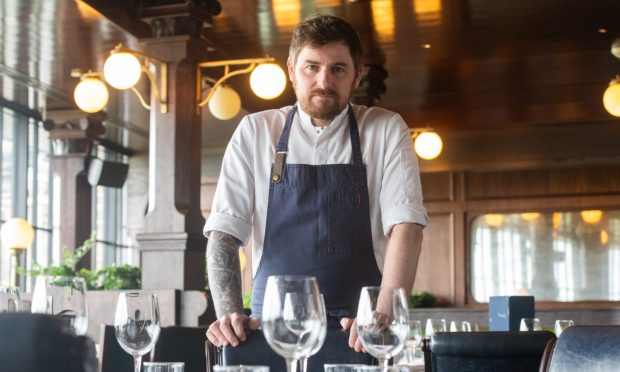
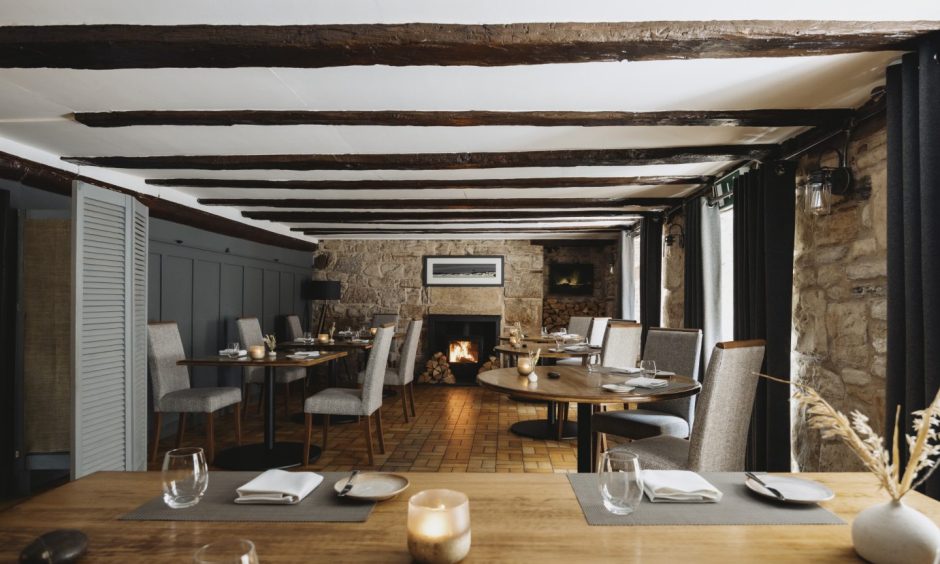
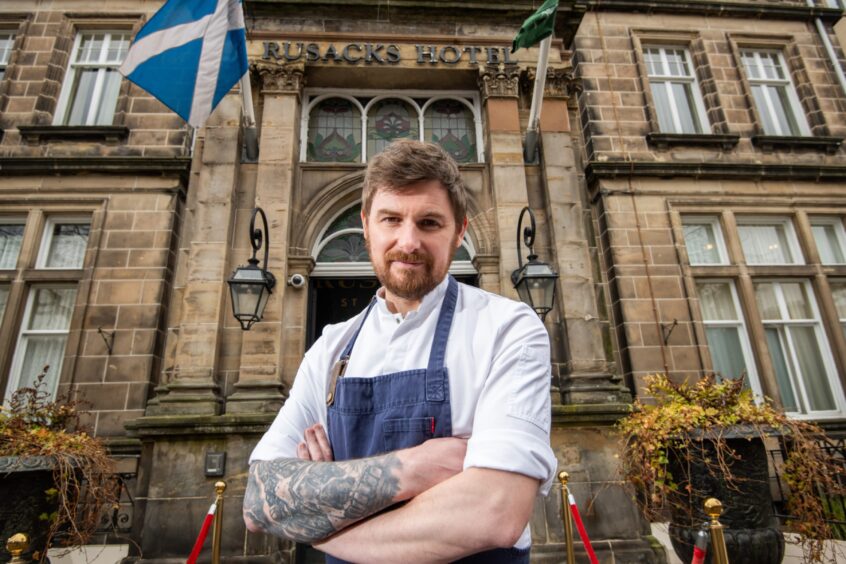
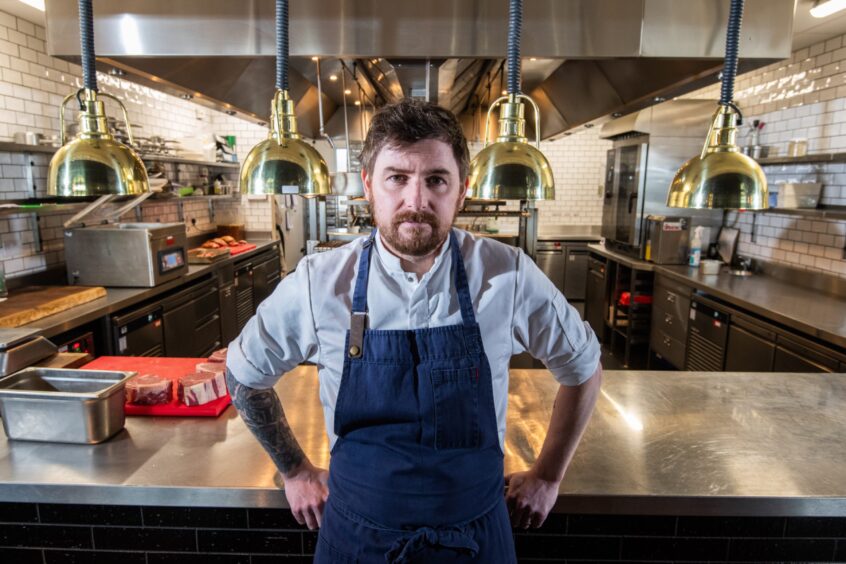
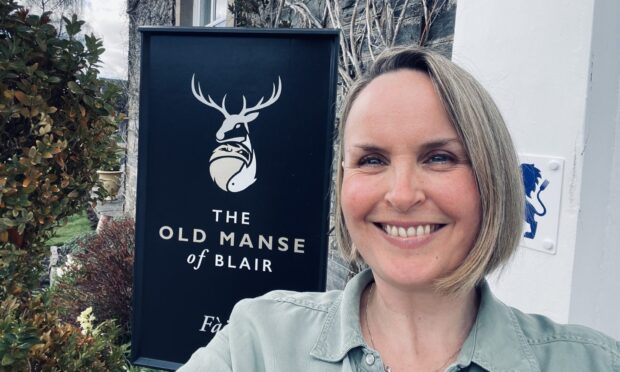
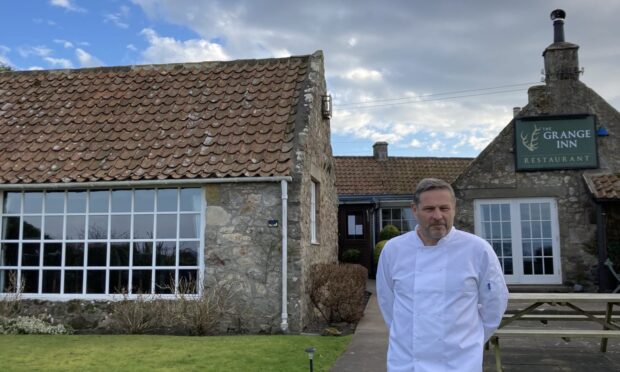


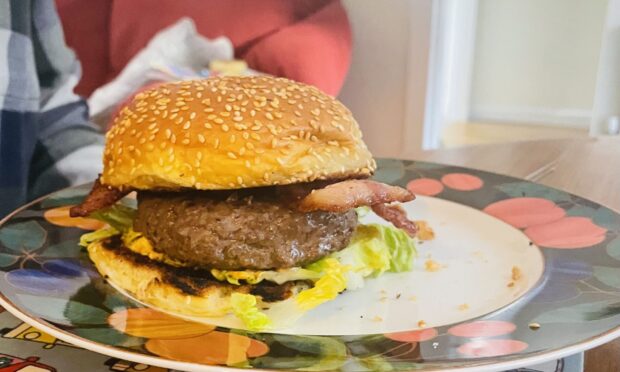
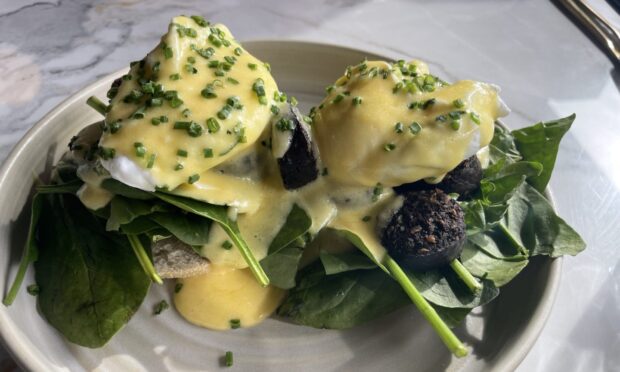
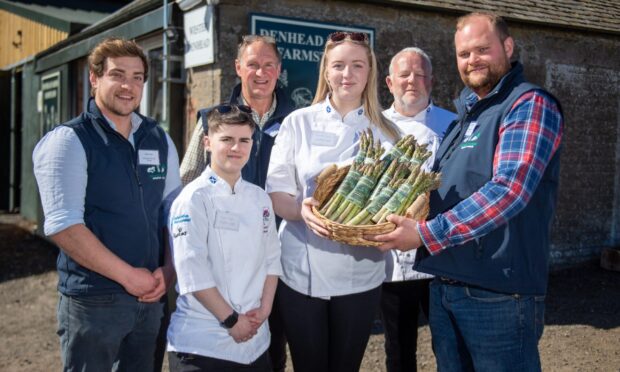
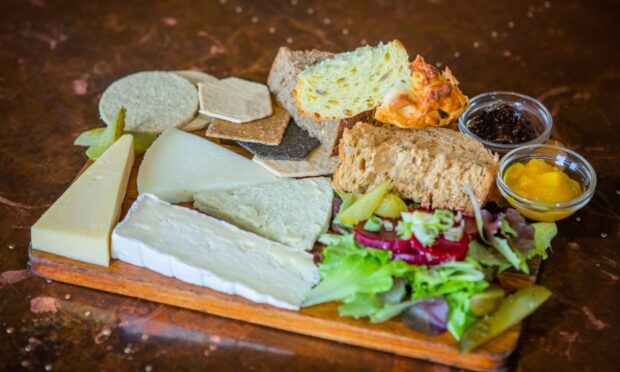
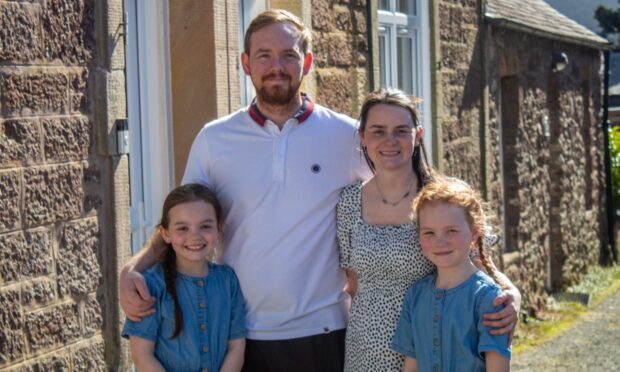
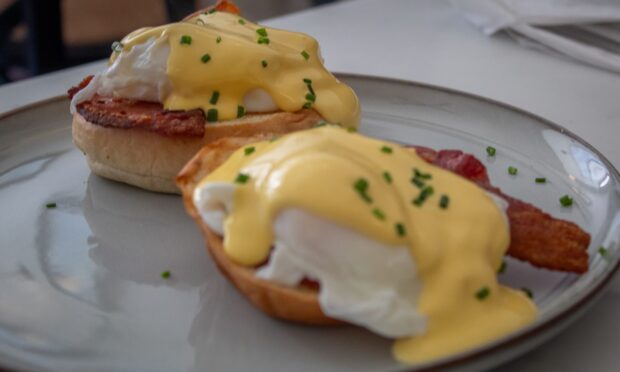
Conversation